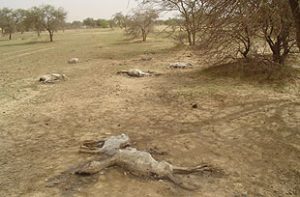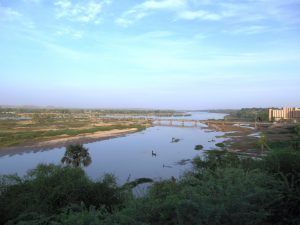By Amber Nicolai
As with many issues faced by developing nations, climate change is intensifying many of Niger’s existing difficulties, such as the lack of access to land for farming and grazing. About 80% of Niger’s population relies on farming or herding for sustenance, and suitable land is becoming increasingly difficult to find.

Source: Peter Casier
Settled Zuma farmers are losing crops due to often unpredictable, extreme weather conditions brought on by climate change, with severe droughts or flash floods wiping out their only means of income. Meanwhile, these same conditions are forcing the nomadic Fulani herders to travel further and search longer for pastureland and water for their animals.

Source: EU Civil Protection and Humanitarian Aid
This conflict has been ongoing since 1944 and has noticeably increased as temperatures have risen and desertification has increased. The effects of climate change continue to make usable land even more scarce in the country and clashes between Zuma farmers and Fulani herders continue to escalate and become more violent as both groups try to find land capable of supporting them and their families.
The best hope of mitigating this conflict is for Nigeriens to combat climate change’s effects and build resilience against them. Many groups in the country are doing this by diversifying food production, building food banks, and generating alternate sources of income, among other things.
One of the ways Wells Bring Hope is helping families in Niger to generate income is by empowering women to get educated, start their own small businesses, and have greater access to health resources. This allows them to be self-sufficient when they are left alone to care for children as the men in the family go off in their long search for farm or pastureland and increase the families’ quality of life overall.
You can learn more about what we do here.
Sources:
10 Facts About Sanitation in Niger
Climate Change Threatens End of Trail for Niger’s Nomadic Herders
https://www.rappler.com/environment/climate-change-threatens-fulani-niger-nomadic-herders
Building Climate Change Resilience in Niger to Keep Hunger Away
https://www.oxfam.org/en/building-climate-change-resilience-niger-keep-hunger-away
Farmer-Herder Conflict Between Fulani and Zarma in Niger
https://climate-diplomacy.org/case-studies/farmer-herder-conflict-between-fulani-and-zarma-niger


